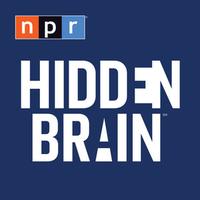How Does Sunshine Affect The Lottery?
DAVID GREENE, HOST:
You know, from Wall Street to Las Vegas, a lot of people take chances. And there's now some new social science research looking at how the mood of a gambler can change the way he thinks about the risk. NPR's Shankar Vedantam is here to explain this. Hey, Shankar.
SHANKAR VEDANTAM, BYLINE: Hi, David.
GREENE: So I guess the essential question is - should I gamble when I'm happy or sad? Or what's going on here? VEDANTAM: (Laughter) That is a central question. But, in fact, I know when you're going to gamble. I know that you're more likely to gamble... GREENE: You think you know when I'm going to gamble then. VEDANTAM: That's right. I think I know when you're going to gamble. GREENE: Uh-huh.
When is that?
VEDANTAM: I think you're going to gamble when you're happy. In fact, we've known for a long time that people in laboratory experiments are more likely to gamble when they're in a good mood. They feel good. They feel invincible, and they say I'm going to take a risk. Now, it's been difficult to experimentally study this idea in the real world because it would be unethical to put people in the position (laughter) where they might lose lots and lots of money. That would not be a nice...
GREENE: Probably not a good thing to experiment with.
VEDANTAM: Right. So Ross Otto, Stephen Fleming and Paul Glimcher recently hit upon an interesting way to test this idea. They looked at the propensity of New Yorkers to gamble based on the quality of the weather and the performance of local sports teams.
GREENE: Because good weather and your teams winning generally make you happier.
VEDANTAM: Exactly.
By analyzing the sales of lottery tickets across 174 ZIP codes and correlating the results with the performance of football, baseball, basketball and hockey teams, the researchers find that New Yorkers, in real life, do indeed buy more lottery tickets when their teams wins compared to when their teams lose. Basically, when you're in a good mood for some unrelated reason, you extrapolate that good mood to a sense of optimism when it comes to gambling. GREENE: OK. So do you win more when you're happy and the weather's good and your teams are winning? Or do we not know that?
VEDANTAM: I don't think statistics changes because of your mood, David. GREENE: OK. So Shankar, if your store sells lottery tickets, if you're a casino - do you - should you just shut down because you're not expecting people to come when it's cloudy... VEDANTAM: (Laughter).
GREENE: ...And when sports teams are doing badly in the area?
VEDANTAM: Well, I think it probably is the case that you are probably going to sell fewer lottery tickets when the weather's bad and the sports team is losing. GREENE: Uh-huh.
VEDANTAM: That absolutely is the case. Now there's also the policy implication on the positive side, David, which is - how should you ensure the well-being of the people who are actually doing the gambling, not just the people who are selling the lottery tickets? GREENE: Oh, the idea that policymakers should look out for people, and they know that people are more vulnerable when they're happy. So should they not let casinos and lottery ticket salespeople take advantage of them?
VEDANTAM: That's exactly right. The problem is, I think, shutting down casinos and gambling when the weather's good is a policy idea that's probably going to be a nonstarter. GREENE: Uh-huh.
So policymakers should just target people when they're happy. VEDANTAM: Exactly.
GREENE: And when the weather's nice. VEDANTAM: Exactly.
GREENE: And when sports teams are doing well.
VEDANTAM: Yes.
GREENE: OK. Shankar, thanks.
VEDANTAM: Thanks, David.
GREENE: That is Shankar Vedantam, NPR social science correspondent. He is also the host of a new podcast that explores the unseen patterns in human behavior. You should check it out. It's called Hidden Brain.

